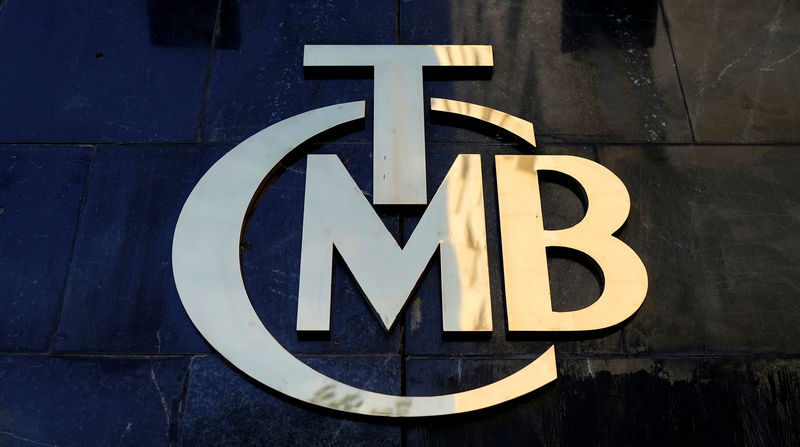By Nevzat Devranoglu
ANKARA (Reuters) - Turkey's central bank has dismissed its chief economist, Hakan Kara, and some department managers, according to a document seen by Reuters, re-igniting concern about political interference in the institution one month after the sacking of its governor.
The decision was part of a reorganization to make the bank more effective, according to the document, and was taken at an internal bank meeting. It followed comments from President Tayyip Erdogan in July that the bank needed to be overhauled.
Also dismissed were the bank's research and monetary policy general manager, Pinar Ozlu; markets general manager Orhan Kandar; and banking and financial institutions general manager Yavuz Yeter, the document showed. Kara and the general managers were all given the role of advisers.
"This move will further weigh on concerns around erosion of (the bank's) institutional strength," said Timothy Ash, head of emerging market research at Blue Bay Asset Management.
Kara was the backbone of the Central Bank of the Republic of Turkey research efforts and "the face of the CBRT for investors for almost two decades", Ash said, adding his dismissal was a greater loss than the sacking of former governor Murat Cetinkaya.
The document did not identify a new chief economist, but named several people as being appointed to fill vacancies in the bank's economics team after the changes. More than 10 people were dismissed in total.
The lira
SHARP RATE CUT
The document said the reorganization was carried out to facilitate "the effective performance of duties, the effective management of operations and the clear definition of departments areas of responsibility."
Last September, Governor Cetinkaya raised interest rates by 625 basis points to stem a currency crisis. Rates remained at 24% this year, preventing further losses in Turkey's lira but helping push the economy into recession.
He was sacked last month by Erdogan, who said he failed to follow instructions on interest rates and the bank had not properly fulfilled its role.
Erdogan has often expressed the unorthodox view that inflation will come down when interest rates are lowered, adding that he expects stronger economic recovery in the second half of the year.
At its first meeting under it new governor, Murat Uysal, this month, the bank's monetary policy committee slashed its key interest rate by 425 basis points to 19.75%.
The bank cited improving inflation in its decision to cut rates and said its stance remained cautious. Inflation rose to a 15-year high above 25% last year, prompting the aggressive rate increases, but has dropped to 16.65% as of July.
Erdogan, who has called interest rates the "mother of all evil", has repeatedly called for lower borrowing costs to boost the economy, which shrank 2.6% in the first quarter, after a 30% lira slide last year amid soaring inflation.

He first signaled moves to reorganize the bank in comments to reporters last month, saying Turkey could face serious problems if its central bank were not completely overhauled.